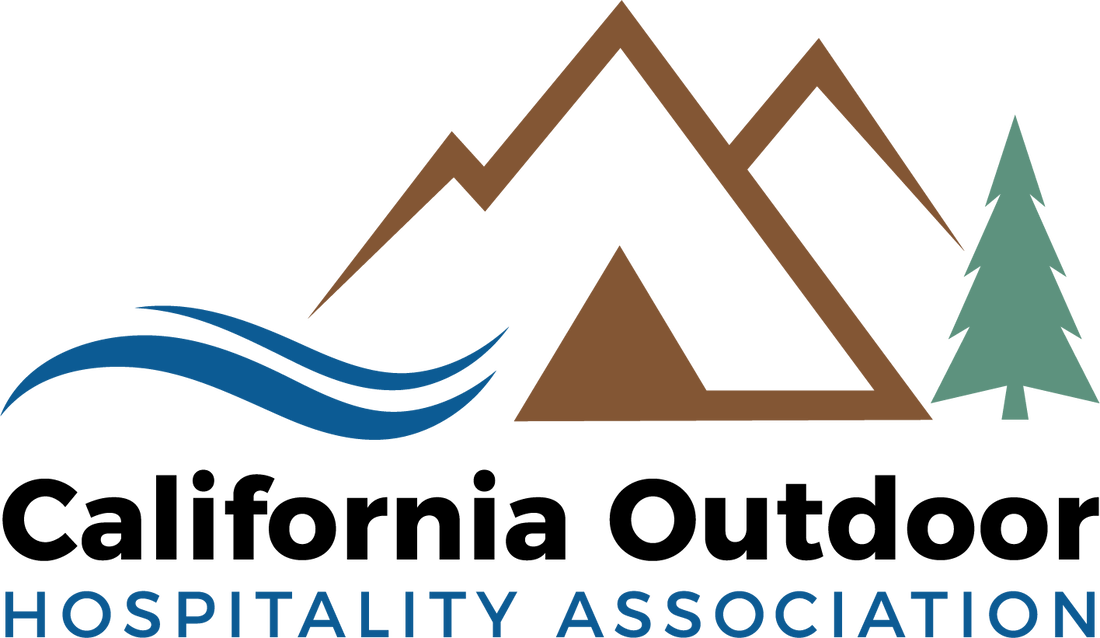 The modern campground industry is traced back to the 1960s. A time when rapid growth in the RV industry created demand for lots of new campgrounds across the country. It was in 1962 when Kampgrounds of America (KOA) was formed. Yogi Bear’s Jellystone Park franchise network was established in 1969. Big camping clubs were also formed at this time, including The Good Sam Club in 1966. (Excerpt from The History of the California Travel Parks Assn by Jeff Crider) It was the late 60’s and early 70’s when many of California’s oldest privately owned and operated campgrounds and RV parks were established, including: Wishon Village RV Park (1960) - Fountain of Youth Spa in Niland (1966) - Bodega Bay RV Park (1967) - San Diego KOA in Chula Vista (1968) - Casini Ranch in Duncan Mills (1969) - Casa de Fruta RV Park (1971) - Orangeland RV Park (1972) - Pismo Coast Village RV Resort (1972) - Village Camper Inn in Crescent City (1972) - 49er Village RV Resort (1973) - San Francisco North / Petaluma KOA (1973) - Carmel by the River RV Park (1976). It was also a time when the owners of these properties and others recognized that the rights of RV parks needed to be recognized and protected. Associations began to form across the country. The California Travel Parks Association was established in 1972. These early pioneers were passionate political activists that took many matters into their own hands. In 1979 they fought legislation to terminate HCD jurisdiction over RV parks. In 1992 they ran legislation to encourage California to conform to the Federal System of Highway Mileage Marker and Exit numbers. 1993 they sued the National Park Service (talk about some guts) citing unfair competition in Orrick. They fought taxes, ran economic studies, partnered with Ticketron to sell sites, and eventually created the Special Occupancy Parks Act that made significant changes to Title 25 Heath and Safety Code. The forefathers/and mothers of our industry paved the way for the industry we have today. While it has become more challenging for park owners to tap into their own political prowess there is still work to be done. The California Outdoor Hospitality Association fought legislation that would have punished RV park owners for following the RV park residency law. Had CalOHA not stepped in to oppose this legislation, AB 1472 would be on its way to becoming law. We need to continue the fight, but we need your help. Your membership dues allow us to help you. Please reach out to your fellow parks and encourage them to join in support of all private RV parks and campgrounds in California. Jeff Crider is currently in production of our association history book that should be released in early February. See you on the road. Dyana
0 Comments
 With AB 1472 in the rear-view mirror (for now), what lies ahead for the RV park industry? We have had a nice run of laying low and falling back on the RV park residency law – (California Civil Codes Chapter 2.6) to assist with removals and evictions. But now that we have been in the limelight it might be time to clean up our act a bit and fly right rather than under the radar. Many RV parks need long term tenants to stay afloat so it has become common practice to allow for a percentage of the park to become “residential”. The appearance of residential affordable housing is the very thing that will bury us in the legislature in the very near future. If it walks like a duck and floats like a duck, then it must be a duck. If we look like and act like low-income housing, then that is how we will be perceived and regulated. As an industry, we must operate our parks as though they are 100% transient even though we may have long term guests, but how do we do that? A good solid set of rules THAT YOU ACTUALLY FOLLOW. Rules are of no use if you allow everyone to break them, and our attorney partners will appreciate your adherence to your own rules when they must defend you in an unlawful detainer case. Utilize the Special Occupancy Parks Act and RVP Law. Did you know that your guest CANNOT occupy more than 75% of their site? It is the law. Do you know the civil code rules for accessory structures? If you don’t, you should. What about modification of an RV (you know like those window AC units)? Yes, that means the RV has been modified and cannot be in your park. What about an RVIA (or similar) seal of approval? The RVIA changed the wording on their seal to read “This recreational vehicle is designed for temporary recreational camping or seasonal use.” Manufacturers will no longer warranty a vehicle that is being “lived” in full time. An RV must have a seal, or the owner must self-declare for the vehicle to be in an RV park. Do you have a self-declare waiver? The vehicle must be operable and registered with the DMV (not as a non-op). This means that all the systems must be operable. Toilet, shower, refrigerator, AC, and appliances must all be operable as well as the vehicle itself. The vehicle and tow vehicle (if applicable) must be registered with tags on. This is a basic state law. If they can’t follow this, they will not follow your park rules. This might be difficult to hear, but parks that are operating as residential parks may want to consider reregistering as a mobile home park to avoid the inference on your counterparts who choose to be transient that all RV parks are low-income housing. A great deal of thought was put into SOPA by the founders of this association. It set to separate RV parks and their transient occupancy from full time mobile home parks. Now we are at risk of losing the very code and law that make us unique. See you on the road. Dyana  After a long, harsh winter, California now faces a dangerous summer of unpredictable wildfires and climate change. Wildfire numbers across the United States have continuously grown since 2000, but California wildfires in particular are escalating and becoming more and more unpredictable. After a rough winter of heavy snowfall and rain, vegetation is blooming. While this may sound like just what we needed after the worst drought in over a millennium, flourishing greenery serves as an effective kindling for summer wildfires. Cal Fire crews are trying to outsmart these erratic fires with fire behaviorists, who use everything from drones and radar to artificial intelligence models to try and predict how the blazes will move. The smallest of factors can change its course, like wind force or even the shape of slopes. In the end, however, trying to predict something so arbitrary is oftentimes unsuccessful. Adding to the unpredictability of this year’s wildfire season is the drastic heat waves as a result of climate change. The last two weekends have reached triple digits, and there doesn’t look to be any relief for the remainder of the summer. These heat waves not only keep flames burning overnight (during the crucial hours when firefighters try to get ahead of them), they put California residents in danger as well. The key takeaway from the radical start to this summer is to stay safe. Keep updated with wildfires throughout the state and keep yourself and your workers safe from the heat outside. Read the full article from CalMatters! For more information about wildfire safety as well as protecting outdoor workers from heat illnesses, check out these CalOHA articles!  The California Outdoor Hospitality Association (CalOHA) is one of the nation’s leading associations for RV parks, campgrounds, outdoor resorts, and glamping establishments. CalOHA provides members with the tools, resources, and programs they need to be successful while ensuring that outdoor hospitality is a valued and recognized segment of travel and tourism. We work to promote the growth and development of the industry through our four pillars of success: Communications, Advocacy, Marketing, and Programs. Our mission is to promote and protect California RV parks and campgrounds and help them be profitable while they provide a positive experience for the camping consumer. CalOHA delivers a high-level member support team as we encourage support and unity from non-member parks and industry partners alike. Through extensive member promotion, education, cost-saving programs, and legislative advocacy, CalOHA is here to serve our members and promote the growth and development of the outdoor hospitality industry. We strive to be a one-stop-shop for owners and operators. As the industry expands so must we or risk becoming obsolete. We must diversify to grow but also remain true to our vision. Consistently at the heart of our organization is a steadfast commitment to an industry that is thriving amongst an ever-changing landscape. Yet we remain an underserved segment of travel and tourism. The California Outdoor Hospitality Association represents unity within our industry. The more robust the industry we represent the greater our visibility and relevance in the travel and tourism sector. Without our members, our association would not be able to function as it does; the support of our members allows us to continue fighting, advocating, and promoting growth for the future of the outdoor hospitality industry. We invite our members to share our membership brochure that outlines our programs and benefits offered to members designed to help them operate successfully and easily engage with consumers. On top of benefits and programs, members receive listings in both our consumer-facing publication, the Camper’s Guide to California, and on our consumer website, Camp-California.com. |
Check out more blog posts!
Categories
All
Archives
June 2024
|
|
2023 Copyright California Outdoor Hospitality Association. All Rights Reserved.
319 Nevada Street | Auburn, CA 95603 Phone: (530) 885-1624 | [email protected] | sitemap |

